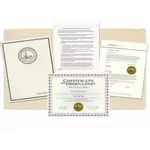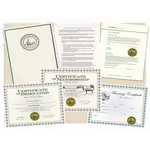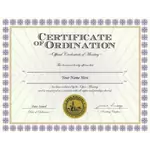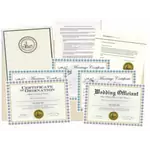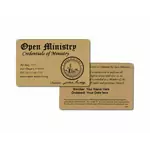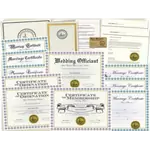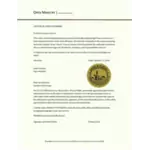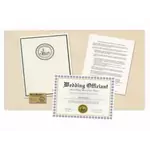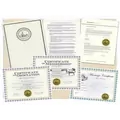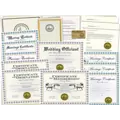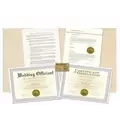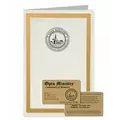Information on How to Get Ordained and Register as a Minister
How to get ordained and perform a wedding or ceremony in Utah.
Since 2010, Open Ministry has been ordaining and helping people all over the world perform weddings, ceremony and other sacerdotal duties. This page focuses on requirements and information for Utah, if you don't need the States Statues or ordination information for Utah scroll down to the bottom of the page for links to other states.
Let's get started with the information for Utah
If you are planning to get ordained in Utah or you have been asked to perform a wedding ceremony in Utah, or simply need to to find a minister in Utah to perform your wedding ceremony the information on this page will assist you. If you still have questions we invite you to visit our FAQ or contact us for more detailed information. We are here to help and support our ministers and congregation.
Registered Ministers with Open Ministry have successfully performed thousands of marriages in Utah and around the world!
The Ordination and Officiant information is provided below in an easy five step layout which is designed help walk you through the most common steps on registering to become a minister for Utah and how perform a wedding ceremony in Utah.
Step 1 - How to Become Ordained
How to get Ordained in Utah and become a minister to perform weddings and marriage ceremonies in Utah
Ordinations for Utah are completely free and can normally be completed in less than a day. Thousands of people have registered and became licensed ministers in Utah. Once you have completed the ordination process you are able perform marriages through Open Ministry in and for the state of Utah!
Become Ordained for free and start your journey as an authorized minister in Utah with Open Ministry.
Get started today by clicking on the link below!
Step 2 - Contact The County Clerk
How to Register to Officiate a Marriage in Utah
Next, contact the office of your local marriage authority (typically your county clerk in Utah). Let them know that you are a ordained minister with Open Ministry in California, and ask them what information the will require of you, to officiate a marriage in Utah. Most clerks and governing agencies may require that you present them with a physical copy of your ordination record.
When speaking with the county clerk; it can be helpful to use the following phrases.
- What agency or department issues marriage licenses in your county and how may I contact them?
- I am an ordained minister with a church in California and I would like to register as a wedding Officiant in your county to perform and solemnize weddings.
- I have my Letter of Good Standing and/or Ordination Credential as proof of my ministry and ordination.
- What additional documentation is required for me to register as a wedding Officiant in your county or state?
Step 3 - Getting Licensed to Perform the Marriage
License to perform a wedding in Utah
After you've contacted your marriage authority, you will want to visit our bookstore to get physical copies official credentials for presentation and your records. (See Utah State Statutes for More Specific Requirements )
When registering in Utah you may be asked to display proof of your ordination to the county clerk's before they will accept the marriage license as having been legally solemnized. We typically advise ministers of Utah to get a Complete Minister Package for Utah which includes your Letter of Good Standing (the live signed and notarized physical copy of your standing with our ministry).
Having your physical copies credentials provides peace-of-mind to couples and others that you intend to marry. Additionally, we recommend at least 4 weeks between the date of the wedding ceremony and your order, to ensure that you receive all of your materials and are able to register in time. Please note that every state and county can impose different requirements. This may include other nominal fees and additional paperwork that may need to be completed before the ceremony can take place.
It is important to note that some county clerks in Utah may require wedding officiants to attach a statement which asserts some of the elements in the marriage license upon submission, including the following:
- The time and location at which the wedding took place
- The names and places of residence of all official witnesses
- The religious organization in which the officiant is ordained
- The printed name and address of the officiant
Please note that, when filling out a marriage license, that Utah State may request you use the title "Minister" or "Reverend". The County Clerks may also require you enter your denomination, you can use "Non-Denominational". Failing to state a denomination may result in rejection and could require a duplicate marriage license.
Step 4 - How to Perform the Wedding
How to perform a wedding in Utah
Once you have completed of the above, you are ready to perform the wedding! Be sure that the couple has picked up their Utah state issued marriage license from the appropriate office. Utah marriage licenses valid for a set number of days, and there may be a waiting period between when the couple receives the marriage license in Utah and when the ceremony may be legally performed in Utah. This information should be written on the license and followed to ensure the ceremony is recorded properly.
Please be aware that the signed license must be returned to the issuing office in Utah before the time limit is reached. Check the marriage license for the exact dates. Once the the previous matters have been addressed, officiating a wedding in Utah can be a great and wonderful experience.
If you have any comments or issues as a wedding officiant in Utah, or after you have been ordained, or would like to just asking for guidance on how to perform a wedding ceremony in Utah. We recommend that all new Utah wedding ministers who have issues or concerns about the ceremony read over our helpful guides.
Utah
30-1-6 Who may solemnize marriages -- Certificate
(1) Marriages may be solemnized by the following persons only:
(a) ministers, rabbis, or priests of any religious denomination who are:
(i) in regular communion with any religious society; and
(ii) 18 years of age or older;
(b) Native American spiritual advisors;
(c) the governor;
(d) the lieutenant governor;
(e) mayors of municipalities or county executives;
(f) a justice, judge, or commissioner of a court of record;
(g) a judge of a court not of record of the state;
(h) judges or magistrates of the United States;
(i) the county clerk of any county in the state, if the clerk chooses to solemnize marriages;
(j) the president of the Senate;
(k) the speaker of the House of Representatives; or
(l) a judge or magistrate who holds office in Utah when retired, under rules set by the Supreme Court.
(2) A person authorized under Subsection (1) who solemnizes a marriage shall give to the couple married a certificate of marriage that shows the:
(a) name of the county from which the license is issued; and
(b) date of the license's issuance.
(3) As used in this section:
(a) "Judge or magistrate of the United States" means:
(i) a justice of the United States Supreme Court;
(ii) a judge of a court of appeals;
(iii) a judge of a district court;
(iv) a judge of any court created by an act of Congress the judges of which are entitled to hold office during good behavior;
(v) a judge of a bankruptcy court;
(vi) a judge of a tax court; or
(vii) a United States magistrate.
(b) (i) "Native American spiritual advisor" means a person who:
(A) (I) leads, instructs, or facilitates a Native American religious ceremony or service; or
(II) provides religious counseling; and
(B) is recognized as a spiritual advisor by a federally recognized Native American tribe.
(ii) "Native American spiritual advisor" includes a sweat lodge leader, medicine person, traditional religious practitioner, or holy man or woman.
(4) Notwithstanding any other provision in law, no person authorized under Subsection (1) to solemnize a marriage may delegate or deputize another person to perform the function of solemnizing a marriage, except that only employees of the office responsible for the issuance of marriage licenses may be deputized.
Title 30: Husband and Wife - Chapter 1: Marriage
Amended by Chapter 132, 2010 General Session

